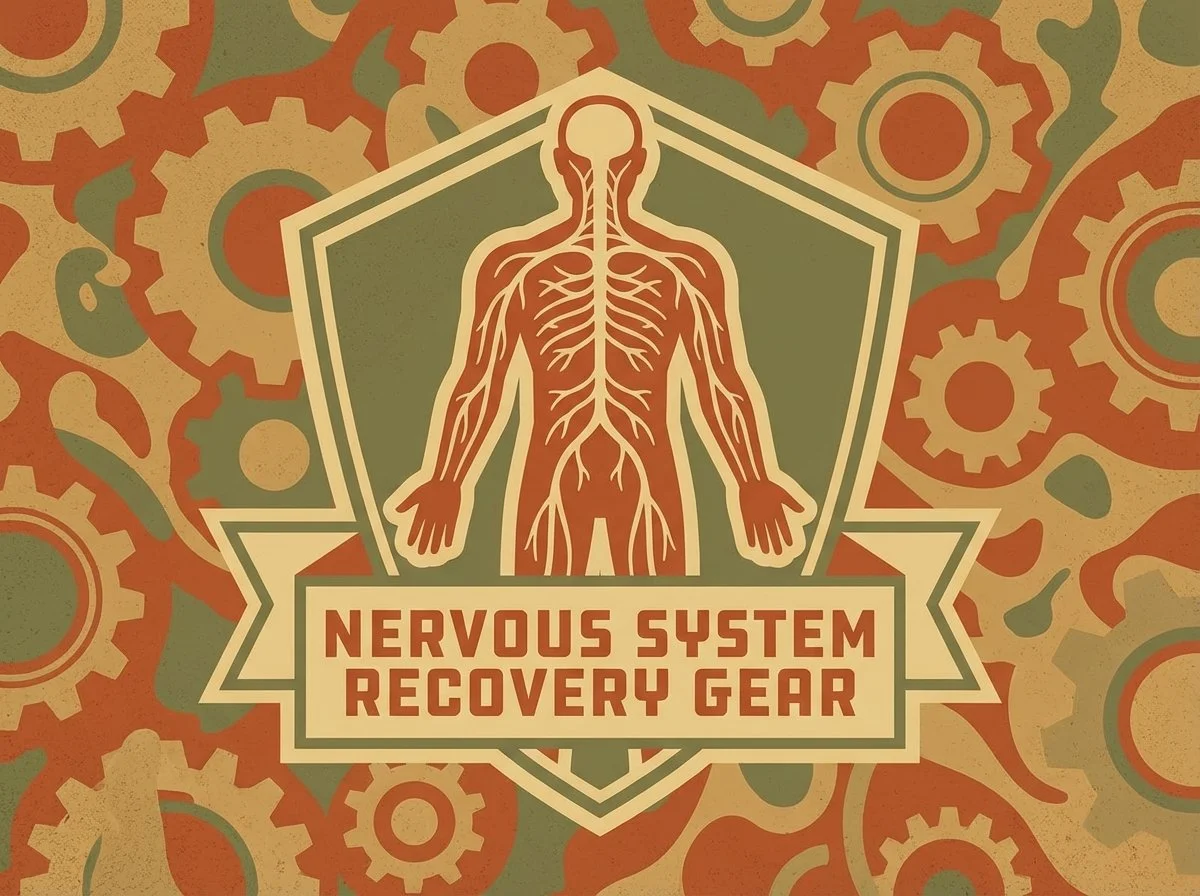What to Look for in a Clinical Supervisor: A Therapist's Success Guide
Clinical supervision provides structured guidance where an experienced professional supports your development as a therapist. The quality of this supervisory relationship affects your professional development.
Therapists receive clinical supervision at various career stages. Pre-licensed therapists must complete required supervision hours for licensure. This requirement makes selecting an appropriate clinical supervisor a critical decision. Qualified supervisors may not necessarily be the right match for your specific needs.
Clinical supervision supports professional growth through structured challenge and support within your practice. Supervision requires vulnerability as you discuss clinical mistakes, uncertainties, and areas needing improvement. A collaborative, trusting relationship creates an effective learning environment.
This guide covers essential supervisor qualities including credentials, experience, compatibility, and practical considerations. We provide information for therapists beginning their professional development and those seeking continued growth through supervision.
Clinical Supervisor Role
Image Source: Firelight Supervision
Quality clinical supervision forms the foundation of effective therapeutic practice. Understanding supervisor roles helps you identify appropriate supervision matches.
Supervisor Functions
Clinical supervisors operate at the intersection of education, consultation, and professional development. According to Milne (2007), supervision is "relationship-based education and training that is work-focused and which manages, supports, develops and evaluates the work of colleagues". Clinical supervisors bridge theoretical knowledge and practical application through multiple roles:
Teacher: Identifying learning needs, developing counseling knowledge and skills, and promoting professional growth
Consultant: Providing case consultation, monitoring performance, and offering alternative case conceptualizations
Coach: Building morale, assessing strengths, suggesting clinical approaches, and preventing burnout
Mentor/Role Model: Teaching through modeling and facilitating overall professional development
Clinical supervisors focus on improving client care and enhancing job performance. Administrative supervisors handle compliance with policies and procedures. Clinical supervisors ensure quality service delivery while supporting practitioner growth.
Supervision Functions for Therapist Development
Clinical supervision provides the structure for therapists to acquire professional knowledge and skills. Proctor (1986) identified three supervision functions: normative (ensuring quality standards), formative (developing skills), and restorative (supporting well-being).
Formative functions facilitate skill development and increase clinical practice knowledge. Supervision helps you refine techniques, strengthen therapeutic alliances with clients, and manage challenging clinical situations.
Restorative functions address practitioner well-being. Studies show 21-67% of mental health providers report experiencing burnout at some point in their career. Supervision reduces this risk through emotional support and safe processing of therapeutic work challenges.
Supervision and Therapy Distinctions
Supervision differs from therapy in focus and outcomes. Therapy focuses on client personal growth. Supervision focuses on you as the therapist or trainee.
Therapy aims to resolve personal problems. Supervision seeks to improve the quality of therapy you provide. Clinical supervisors state "Therapy is about repair; supervision is about enhancement".
The supervisory relationship maintains professional and educational focus. Empathy remains important, but emphasis centers on professional growth and skill development rather than personal issues. Supervision provides structured case reflection, feedback, and competence development with the goal of enhancing client welfare.
Understanding these distinctions helps you identify supervisors who can effectively balance multiple roles and functions to support your developmental needs.
Supervisor Qualifications
Supervisor qualifications determine whether your supervision hours meet licensure requirements. Qualified supervisors possess appropriate expertise for professional guidance.
Education and credentials
Clinical supervisors must hold advanced mental health education. Regulatory bodies require supervisors to have at least a master's degree or higher in a mental health field from an accredited institution. Supervisors with international degrees require credential evaluation through World Education Services or Educational Credential Evaluators.
Jurisdictions require specific supervision credentials:
Approved Clinical Supervisor (ACS) credential - recognized in fifteen states as a supervision credential
Canadian Clinical Supervisor (CCS) certification - acknowledges supervision as distinct competence requiring additional knowledge and skills
Certified Clinical Supervisor (CCS) for alcohol and drug counselors
These credentials demonstrate commitment to quality supervision and national professional standards.
Specialized supervision training
Clinical supervision requires dedicated formal education and training. Training covers:
Models and theories of supervision
Relationship formation and maintenance
Diversity and multiculturalism
Feedback and evaluation methods
Ethical decision-making and gatekeeping
Twenty-eight jurisdictions require supervisors to complete specific training before providing supervision. Requirements range from three to 45 hours, averaging 15 hours. Alberta requires 20 hours of supervision fundamentals training within five years. California mandates 15 contact hours in specific content areas.
Nineteen jurisdictions require ongoing continuing education for clinical supervisors, typically four hours annually.
Licensing and regulatory requirements
Supervisors meet licensing requirements for independent practice:
Professional licensure in behavioral/mental health field or National Certified Counselor (NCC) certification
Minimum five years post-master's experience, including 4,000 hours direct client service
Documentation of 100 hours qualified clinical supervision
Requirements vary by jurisdiction. Some mandate pre-approval from licensing boards. Others require minimum licensed practice periods before supervising.
Verify potential supervisors' qualifications and licensing board standing. Supervisors should meet baseline requirements and demonstrate ongoing professional development in supervision practices.
Clinical Experience and Therapeutic Approach Evaluation
Image Source: MedicalNewsToday
Clinical qualifications provide the foundation, but supervisors' actual practice experience and therapeutic approach determine the quality of guidance you receive. Experience directly impacts their ability to support your clinical skill development.
Clinical and Supervision Practice Experience
Clinical supervisors demonstrate varying levels of practice experience. Research indicates experience ranges from less than 5 years of clinical practice to over 25 years in the field. Most licensing bodies establish minimum requirements of three years post-licensure practice experience.
Supervision-specific experience matters equally to general clinical practice. Quality supervisors document at least 100 hours of qualified clinical supervision. This specialized experience ensures understanding of developmental challenges faced by emerging clinicians.
Therapeutic Modalities and Theoretical Framework
Supervisors' knowledge of various therapeutic approaches affects their guidance quality. Effective supervisors maintain competencies in multiple theories and treatment modalities through professional development and continuing education.
Supervisors often apply their primary therapeutic orientation to supervision:
Cognitive therapy supervisors emphasize thought pattern analysis and structured skill development
Psychodynamic supervisors focus on relational dynamics and transference issues
Developmental approach supervisors modify their style based on supervisee growth stages
The Integrated Developmental Model (IDM) recognizes supervisees progress through distinct developmental levels requiring different supervisory approaches. Supervisors' awareness of these developmental stages supports appropriate professional growth.
Client Population Experience
Supervisors should demonstrate expertise with your specific client population. Experience and expertise in your practice area proves essential, particularly with specialized populations:
Addictions treatment
Children and adolescents
Mental health diagnoses
Community organization
Research shows supervisors' experience with your client population enhances their ability to provide relevant guidance for population-specific clinical challenges. Population-specific experience helps supervisors explain treatment modality assumptions and appropriate technique applications with your clients.
Evaluation should prioritize supervisors whose experience level, theoretical orientation, and population expertise match your professional development needs and current clinical practice.
Supervisor Compatibility Assessment
Supervisor selection requires evaluating personal compatibility beyond credentials and experience. The compatibility between you and your supervisor affects the productivity of your professional development relationship.
Essential Supervisor Qualities
Effective supervisors demonstrate empathy, respect, and genuineness—qualities essential for supervision and therapy. Supervisors should show patience, flexibility, encouragement, and reassurance, particularly for early-career therapists.
Quality supervisors display self-awareness, attentiveness, and ask thoughtful questions rather than providing direct instructions. One clinician states, "Having someone who knows you very well and listens to everything that happened to the session in detail is important". This listening capacity creates "relational safety"—the feeling that "I am safe with you".
Cultural Competence and Values Alignment
Supervisors whose values align with yours create more meaningful professional connections. Therapists prioritizing anti-oppression work should seek supervisors who similarly value this approach.
Cultural competence requires understanding and respecting diverse cultural backgrounds. Supervisors should initiate conversations about culture and identity rather than placing this responsibility on supervisees. Supervisors might say, "I'm wondering how my racial identity and your racial identity can inform the work we are doing" to facilitate important discussions.
Communication Style and Personality Match
Supervision involves professional connection. A supervisor's style, values, and presence shape the supervisory environment. Consider these questions before committing:
Can I be open and honest with this supervisor?
Do I feel safe sharing challenges and uncertainties?
Does their style support my professional growth?
Support and Challenge Balance
Effective supervision balances support with challenge. Quality supervisors provide constructive feedback that encourages growth while acknowledging strengths. They create "the appropriate 'mismatch' needed in the learning environment that both challenges growth while supporting".
This balance should match your individual needs and adapt as you develop professionally. Join our Group Consultation to discuss finding supervisors for your specific developmental needs.
Practical Considerations
Image Source: Firelight Supervision
The practical aspects of supervision require attention to logistics and accessibility. These considerations ensure effective supervision arrangements.
Locating Clinical Supervisors
Supervisor search options include multiple resources. Online directories like Mojozy, Psychology Today, and GoodTherapy provide specialized listings organized by state, specialty, and therapeutic approach. Professional associations including AAMFT, APA, NASW, and ACA offer referral services through local chapters. University counseling centers and training programs maintain faculty experienced in supervision.
Supervision Costs
Individual supervision sessions typically cost between $130-$220 per session. Group supervision ranges between $70-$150 per session. BIPOC clinicians and community mental health professionals may access reduced fees when paying out-of-pocket. Some employers provide supervision at no cost, particularly with employment contracts.
Service Delivery Options
Virtual supervision provides access to supervisors regardless of geographic location. Effective telesupervision requires established technology protocols, HIPAA-compliant platforms, and awareness of potential video fatigue. Research indicates no effectiveness difference between in-person and virtual supervision formats.
Record Management
Supervisors maintain documentation for each session including date, duration, discussion topics, signatures, and individual versus group format. Supervision records must be kept for at least seven years. Join our Group Consultation for supervision hour tracking system guidance.
Emergency Consultation Access
Supervisor policies for urgent consultations require clarification before beginning supervision. Response timeframes for clinical emergencies should be established. Supervisor accessibility must be confirmed whether they work within your agency or maintain private practice.
Conclusion
Clinical supervisor selection affects your professional development as a therapist. This guide covered essential elements for productive supervisory relationships.
Qualified clinical supervisors need appropriate credentials and experience. They balance support with challenge, demonstrate cultural awareness, and maintain communication styles that support your growth. Their theoretical approach and client population experience influence your development.
Cost, availability, documentation requirements, and emergency support protocols affect your supervision experience. Virtual supervision provides access to supervisors beyond geographic limits.
Supervision focuses on professional skill development and client care quality. Therapy addresses personal issues. This distinction clarifies expectations for the supervisory relationship.
Your supervisor choice influences licensure requirements and your therapeutic approach. Evaluate potential supervisors thoroughly. Ask specific questions about their qualifications and approach. Consider your developmental needs and relationship compatibility.
Effective supervision provides professional development beyond required hours. The right supervisor helps you develop clinical skills, professional confidence, and therapeutic competence. Your supervision experience establishes the foundation for your clinical practice.
Key Takeaways
Finding the right clinical supervisor is crucial for your professional development and can significantly impact your entire therapeutic career. Here are the essential insights to guide your selection:
• Verify comprehensive qualifications: Ensure your supervisor has advanced mental health education, specialized supervision training, and meets all licensing requirements in your jurisdiction.
• Assess experience alignment: Look for supervisors with extensive clinical practice, documented supervision experience, and specific expertise with your client population.
• Prioritize relational compatibility: Choose someone who demonstrates empathy, cultural sensitivity, and maintains a communication style that makes you feel safe to be vulnerable.
• Balance support with challenge: Effective supervisors provide constructive feedback that encourages growth while acknowledging your strengths and adapting to your developmental stage.
• Consider practical logistics carefully: Evaluate cost, availability, documentation processes, and emergency support policies before committing to ensure smooth supervision experience.
The supervisory relationship is fundamentally different from therapy—it focuses on enhancing your professional capabilities rather than personal repair. This distinction helps clarify expectations and ensures you find someone who can effectively guide your transition from theoretical knowledge to skilled therapeutic practice. Remember, your supervisor becomes a cornerstone of your professional identity, making this decision one of the most important investments in your career development.
FAQs
Q1. What are the key qualities to look for in a clinical supervisor? Look for a supervisor with advanced education, specialized training in supervision, and relevant licensing. They should have extensive clinical experience, expertise in your client population, and demonstrate empathy, cultural sensitivity, and good communication skills. The ability to balance support with constructive challenge is also crucial.
Q2. How does clinical supervision differ from therapy? While therapy focuses on personal growth and problem-solving, clinical supervision aims to enhance your professional skills and ensure quality client care. Supervision is more educational in nature, emphasizing your development as a therapist rather than addressing personal issues directly.
Q3. What practical considerations should I keep in mind when choosing a supervisor? Consider factors such as cost, availability, documentation processes, and emergency support protocols. Evaluate whether in-person or virtual supervision better suits your needs. Ensure the supervisor's experience aligns with your client population and therapeutic approach.
Q4. How important is the supervisory relationship? The supervisory relationship is crucial. Look for someone you feel safe being vulnerable with, who listens attentively, and encourages your growth. A good fit in terms of personality, communication style, and shared values can significantly impact your professional development.
If you are interested in working with one of the supervisors at VitalMinds. Click the link below to get started.








